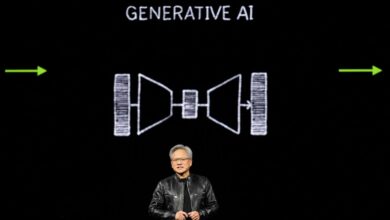How to design artificial intelligence that acts nice — and only nice

agent: A person or thing (it can be a chemical or even a form of energy) that plays some role in getting something done.
artificial intelligence: A type of knowledge-based decision-making exhibited by machines or computers. The term also refers to the field of study in which scientists try to create machines or computer software capable of intelligent behavior.
basalt: A type of black volcanic rock that tends to be very dense (unless volcanic eruptions seeded it with lots of air pockets).
behavior: The way something, often a person or other organism, acts towards others, or conducts itself.
bot: (short for web robot) A computer program designed to appear that its actions come from some human. The goal is to have it interact with people or perform automated tasks such as finding and sharing online information through social-media accounts.
chatbot: A computer program created to seemingly converse with human users. Modern ones (such as Siri, Alexa, Ocelot and Sprinklr) can retrieve information over the internet about news events or classroom topics. Many even work as digital assistants to answer questions about purchases, products or scheduling on behalf of stores, pharmacies or banks.
computer science: The scientific study of the principles and use of computers. Scientists who work in this field are known as computer scientists.
context: The setting or circumstances that help explain an event, some statement or some conclusion.
culture: (n. in social science) The sum total of typical behaviors and social practices of a related group of people
dean: (in colleges and universities) A person to whom a school has given responsibility for overseeing a particular part of the institution or area of concern. For instance, there may be a dean of students, a dean of admissions, a dean of foreign outreach, a dean of the college of engineering or perhaps a dean of social responsibility.
develop: To emerge or to make come into being, either naturally or through human intervention, such as by manufacturing.
development: (in engineering) The growth or change of something from an idea to a prototype.
engineering: The field of research that uses math and science to solve practical problems. Someone who works in this field is known as an engineer.
environment: The sum of all of the things that exist around some organism or the process and the condition those things create. Environment may refer to the weather and ecosystem in which some animal lives, or, perhaps, the temperature and humidity (or even the placement of things in the vicinity of an item of interest).
feedback: A response or assessment that follows some a particular act or decision. Or a process or combination of processes that propel or exaggerate a change in some direction.
field: An area of study, as in: Her field of research is biology. Also a term to describe a real-world environment in which some research is conducted, such as at sea, in a forest, on a mountaintop or on a city street. It is the opposite of an artificial setting, such as a research laboratory.
filter: (n.) Something that allows some materials to pass through but not others, based on their size or some other feature. (v.) The process of screening some things out on the basis of traits such as size, density, electric charge. (in physics) A screen, plate or layer of a substance that absorbs light or other radiation or selectively prevents the transmission of some of its components.
gauge: A device to measure the size or volume of something. For instance, tide gauges track the ever-changing height of coastal water levels throughout the day. Or any system or event that can be used to estimate the size or magnitude of something else. (v. to gauge) The act of measuring or estimating the size of something.
human rights: The basic rights that should be available to all people of just treatment; respect and dignity; a nationality; the ability to marry; basic freedoms (of religion, political opinions, speech); protection from slavery, torture and persecution; and the ability to earn a living that will provide basic food and shelter for families. Many details of this are spelled out in the United Nations’ Universal Declaration of Human Rights .
intelligence: The ability to collect and apply knowledge and skills.
large language model: (in computing) Language models are a type of machine learning. They attempt to predict upcoming words (in text or speech) and then present those predictions using words that almost anyone should understand. The models learn to do this by reviewing large quantities of text or speech. As their name would imply, large language models train using enormous troves of data. They organize and make sense of those data using “neural nets” — a scheme patterned a bit off of the pathways of nerves in the human brain. Large language models don’t just learn words, but also phrases made of many words. They can even learn from the context in which a new phrase and idea is worded (meaning the words that accompany those phrases or in which those phrases have been embedded).
model: A simulation of a real-world event (usually using a computer) that has been developed to predict one or more likely outcomes. Or an individual that is meant to display how something would work in or look on others.
neuroscience: The field of science that deals with the structure or function of the brain and other parts of the nervous system. Researchers in this field are known as neuroscientists.
pandemic: An outbreak of disease that affects a large proportion of the population across much or most of the world.
PhD: (also known as a doctorate) A type of advanced degree offered by universities — typically after five or six years of study — for work that creates new knowledge. People qualify to begin this type of graduate study only after having first completed a college degree (a program that typically takes four years of study).
plastic: Any of a series of materials that are easily deformable; or synthetic materials that have been made from polymers (long strings of some building-block molecule) that tend to be lightweight, inexpensive and resistant to degradation. (adj.) A material that is able to adapt by changing shape or possibly even changing its function.
regulate: (n. regulation) To control with actions. Governments write rules and regulations — laws — that are enforced by police and the courts.
reinforcement: Some consequence that guides the future behavior of an animal or person.
reinforcement learning: An approach to teaching in which an animal or a person learns to perform a specific task to achieve a desired reward.
reward: (In animal behavior) A stimulus, such as a tasty food pellet, that is offered to an animal or person to get them to change their behavior or to learn a task.
robot: A machine that can sense its environment, process information and respond with specific actions. Some robots can act without any human input, while others are guided by a human. Someone who designs or builds robots is known as a roboticist.
strategy: A thoughtful and clever plan for achieving some difficult or challenging goal.
system: A network of parts that together work to achieve some function. For instance, the blood, vessels and heart are primary components of the human body’s circulatory system. Similarly, trains, platforms, tracks, roadway signals and overpasses are among the potential components of a nation’s railway system. System can even be applied to the processes or ideas that are part of some method or ordered set of procedures for getting a task done.
technology: The application of scientific knowledge for practical purposes, especially in industry — or the devices, processes and systems that result from those efforts.
trait: A characteristic feature of something.
United Kingdom: Land encompassing the four “countries” of England, Scotland, Wales and Northern Ireland. More than 80 percent of the United Kingdom’s inhabitants live in England. Many people — including U.K. residents — argue whether the United Kingdom is a country or instead a confederation of four separate countries. The United Nations and most foreign governments treat the United Kingdom as a single nation.



